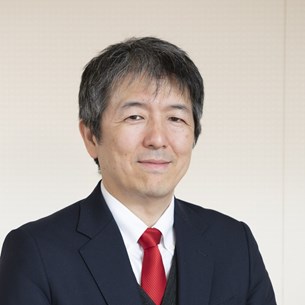Meeting
2016 ASCO Annual Meeting

Gastrointestinal Medical Oncology Division, National Cancer Center Hospital, Tokyo, Japan
Ken Kato , Takashi Kojima , Kentaro Yamazaki , Kei Muro , Hiroki Hara , Keisho Chin , Thomas Goddemeier , Morihiro Watanabe , Toshihiko Doi
Background: Sym004 is a 1:1 mixture of two chimeric IgG1 antibodies targeting non-overlapping epitopes of the epidermal growth factor receptor (EGFR). Binding of both antibodies to EGFR leads to its internalization and degradation. The resulting down-regulation of EGFR results in antitumor activity that is superior to that of cetuximab and panitumumab in preclinical models; Sym004 can also overcome acquired resistance to cetuximab in vivo. We have evaluated the safety of Sym004 in Japanese patients (pts) with advanced solid tumors. Methods: Japanese adults aged ≥ 20 years with refractory or recurrent late-stage solid tumors, ECOG status of 0 or 1, and life expectancy of at least 3 months were eligible for the dose-escalation part of the trial (Part A). Sym004 doses tested were 6 mg/kg weekly (n = ’3+3’), 9 mg/kg loading dose followed by 6 mg/kg weekly (n = 6), 12 mg/kg weekly (n = 6), and 18 mg/kg q2w (n = 6). An expansion cohort of pts with esophageal squamous cell carcinoma (ESCC) (Part B) was enrolled at the Sym004 dose recommended based on part A. The primary objective was the safety and tolerability of Sym004 in Japanese pts. Secondary objectives included antitumor activity and pharmacokinetics. Results: 51 pts were treated (male/female: 39/12; median age 62 [40-73] years; ECOG performance status 0/1: 32/19). No dose-limiting toxicities were observed in Part A. A Sym004 dose of 12 mg/kg weekly was selected for use in Part B (n = 30). Pts in Part B received a median of 7 weeks of Sym004 therapy. All Part B pts had treatment-related adverse events (AEs); 18 had grade ≥ 3 AEs and 5 had serious AEs (cardiac arrest, lung infection, interstitial lung disease, toxic skin eruption, blood creatinine increase). Two pts had treatment-related AEs resulting in death (cardiac arrest and blood creatinine increase). 5 pts had a best overall response of partial response, 12 stable disease, 12 disease progression (1 pt not evaluable). The objective response rate was 16.7% (95% CI: 5.6–34.7%). Conclusions: Sym004 therapy was well tolerated with no DLTs at any dose studied. Evidence of antitumor activity, with objective responses, was observed in the expansion cohort of pts with advanced ESCC. Clinical trial information: NCT01955473
Disclaimer
This material on this page is ©2024 American Society of Clinical Oncology, all rights reserved. Licensing available upon request. For more information, please contact licensing@asco.org
2016 ASCO Annual Meeting
Poster Session
Developmental Therapeutics—Clinical Pharmacology and Experimental Therapeutics
Developmental Therapeutics and Translational Research
Antibodies
NCT01955473
J Clin Oncol 34, 2016 (suppl; abstr 2522)
10.1200/JCO.2016.34.15_suppl.2522
2522
222
Abstract Disclosures
2023 ASCO Breakthrough
First Author: Anthony B. El-Khoueiry
First Author: Shintaro Kanda
2024 ASCO Annual Meeting
First Author: Helena Alexandra Yu
2024 ASCO Annual Meeting
First Author: yuqin xi